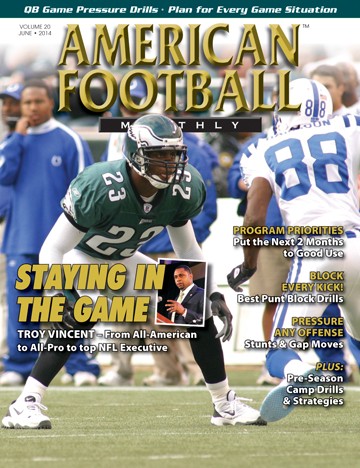Article CategoriesAFM Magazine
|
Coach to Coach: The Mental Fundamentalsby: Tim MitchellAssistant Football Coach, El Capitan High School (CA) and Sports Psychology Consultant © More from this issue The yellow flag is thrown and the coach’s voice is rising. It’s obviously a bad call. Everyone can smell the home cooking. “That score would have put us on top and now it’s called back. The ref has literally taken points away from us.” The coach is livid and walking the tightrope to ejection. The lack of composure is reflected in the players when the clock dwindles and the cheap shots fly. This game will be lost in more ways than one. Building mental toughness starts with the coach. In coaching, one common thread is universally agreed upon, “The game is mostly mental”. We hear coaches address the importance of being “mentally tough” in nearly every practice and competition. But questions arise. What is mental toughness? What are mental skills? How do we use mental skills to develop mental toughness? In the n....The full article can only be seen by subscribers.
|
|
|||||||
| HOME |
MAGAZINE |
SUBSCRIBE | ONLINE COLUMNISTS | COACHING VIDEOS |
Copyright 2025, AmericanFootballMonthly.com
All Rights Reserved





